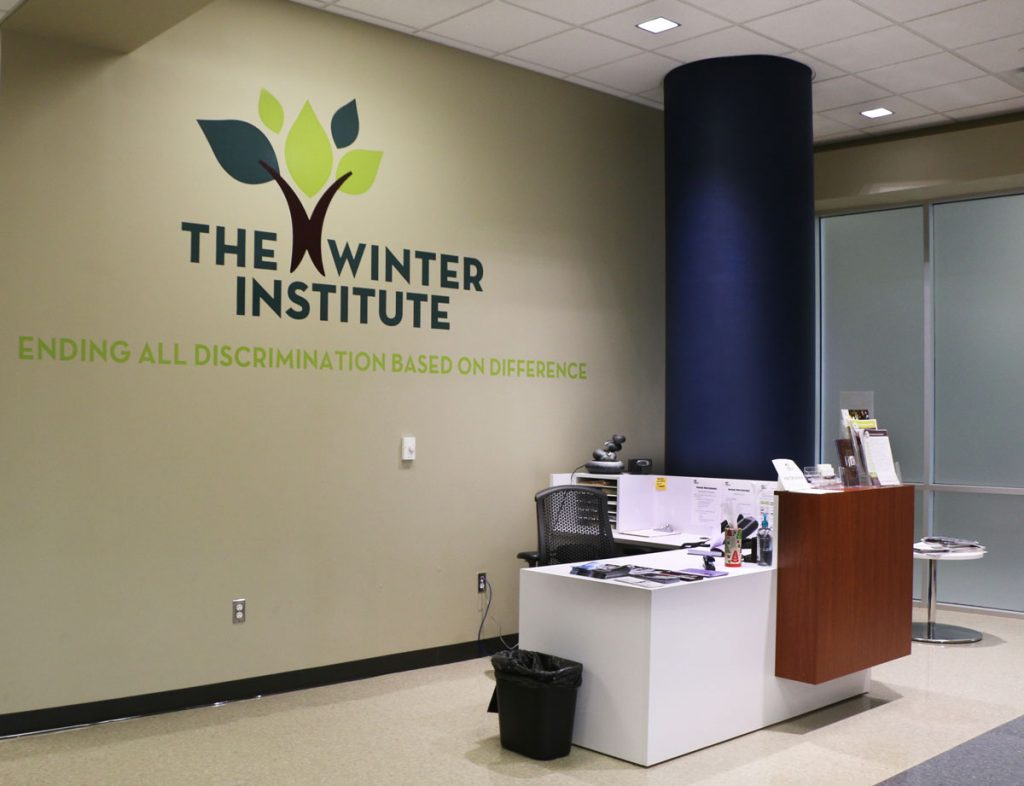On Jan. 31, The Daily Mississippian reported that the William Winter Institute for Racial Reconciliation would relocate to Jackson and reconstitute as an independent nonprofit.
Announcing the transition, former Gov. Winter praised “the vision (of the University of Mississippi) to establish and incubate the Institute for Racial Reconciliation on its campus,” and Chancellor Jeff Vitter hailed the decision as “an example of the highest calling of our university: to take a bold concept, cultivate it and empower it to achieve greater good in society.”
The Winter Institute would not be what it is today without past UM institutional support, but without the Winter Institute, our world would be less just and less hopeful.

The William Winter Institute office is located on the third floor of Lamar Hall. The Institute was designed to help end racial discrimination in the Oxford Community. Photo by Xinyi Song
Originally operated out of Vardaman Hall (named for white supremacist Gov. James Vardaman) and later relocated to Lamar Hall (after L.Q.C. Lamar, a Confederate and slaver), the Winter Institute was established after President Bill Clinton’s 1997 “One America: The President’s Initiative on Race.” Since 1999, the institute has waged a winning war against “all division and discrimination based on difference.”
Locally, the Winter Institute advocates reconciliation and repair across Mississippi: in Gulfport-Biloxi, in Jackson, in McComb and in Greenwood.
In 2004, the institute supported Philadelphia community stakeholders seeking justice for James Chaney, Andrew Goodman and Michael Schwerner, the civil rights activists murdered during the 1964 Freedom Summer. Their calls culminated in the 2005 conviction of Klansman Edgar Ray Killen.
Nationally, the Winter Institute aided New Orleans natives convening community meetings through Welcome Table New Orleans by addressing race issues and inspiring local de-Confederatization.
Internationally, the institute promoted reconciliation among Northern Irish and South African communities still confronting their violent pasts.
Without the Winter Institute, there would be no mandatory statewide K-12 civil rights education. In 2006, the institute and its former executive director, Susan Glisson, lobbied the state Legislature to pass Senate Bill 2718, which created the Mississippi Civil Rights Education Commission. The institute is a permanent commission member.
On a campus still divided by race and history, the institute supported an activist spirit among students.
Its annual Summer Youth Institute (SYI), an experiential education program, invites young Mississippians to learn civil rights history and civic engagement tactics, and many past SYI participants now attend UM.
Its office was home to student advocacy groups UM Pride and UM Queer People of Color (QPOC), and hosted Lafayette County lynching memorialization meetings and restorative justice processes.
Its staff provided student leaders with resources, training and advice by supporting such student-led actions as the 2012 anti-Ku Klux Klan rally, the 2015 #IStandWithDan movement and the successful 2016 #TakeItDown protests and offering student organizations, like our Associated Student Body, its expertise on anti-oppression and bias.
I am indebted to the Winter Institute and its campus staff, those women soldiers of justice and peace whose wisdom and strength lit my way: Susan Glisson, founder and executive director until 2016; Jennifer Stollman, its academic director; April Grayson, its community coordinator; and Melody Frierson, former youth engagement coordinator and SYI organizer.
Their tutelage, their everlong patience and their compassion led me and other student activists through the trials and tribulations of this Ole Miss odyssey. Their dedication, their belief in the revolutionary power of respect, self-determination and equity, continue to empower generations of Mississippians.
Our community — our world — is more just, more inclusive, more whole thanks to the legacy of the William Winter Institute and its staff. Godspeed!
Allen Coon is a senior public policy leadership and African-American studies major from Petal.

